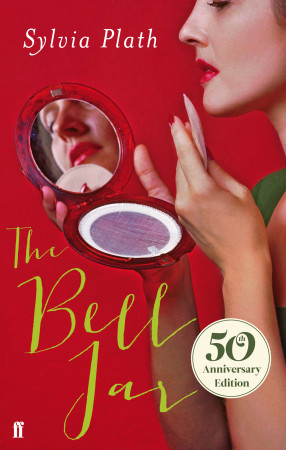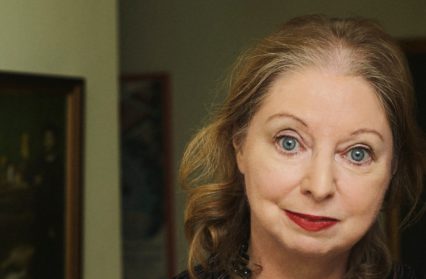Gary Raymond casts a critical eye on his own reading habits and the category of ‘modern women writers’, with a focus on Hilary Mantel.
I have many blind spots in my reading – doesn’t everybody? But the most shameful one is my lack of experience in modern women’s literature and women writers. For ‘modern women’s literature’ is an industry category, and it serves no purpose; it certainly does not serve the women who are shoved into that category. Categories dominate literature. Agents are chronically obsessed with them. And women are the people who suffer most for it. You’ll even notice that throughout this article I will refer to ‘women writers’, as if they write in another language, or use mystical symbols. They do none of these things. They write good books, bad ones, ones that interest me and ones that don’t; just like the male writers who go about their craft without a prefix. And yet I know as much (probably less) about ‘modern women writers’ as I do Russian epics, or Chilean post-modernists.
I know the big hitters: Toni Morrison, Nadine Gordimer, Margaret Atwood, Joyce Carol Oates and a slew of others; Du Maurier, Carter, McCullers. I came to love them from the same springboard as I did the Russian Masters and South American literature, out of a sense of intellectual obligation. The obligation turned to admiration, and often to adoration. But after that there is drop off that questions the natural balance that you’ll find in my record collection, for instance. The reason why this may be has only become clear to me in the last few weeks.
It has much to do with how the industry, the media, and society as a whole views the role of women. I’m beginning to think my lack of knowledge of this literature is because I have been cast under a shadow I didn’t even know was there. In short, the backlash to the small section in Hilary Mantel’s LRB essay-come-speech that criticised the nation and its media’s voyeuristic lurid fascination with the womb of a young lady was not much different to the new cover recently given to the anniversary reprint of Sylvia Plath’s brilliant and highly influential novel The Bell Jar. Faber and Faber, the publishers of the anniversary edition, have clearly made a conscious decision to tie in with the post-Mad Men appetite for 50s couture, having a partial figure of a young woman pouting into a compact mirror as she applies her deep rouge. (It’s still an improvement on Faber’s 2005 edition which was a cheap and crude replica of the poster for the girl-gone-crazy Oscar-winning movie Girl, Interrupted). But it is also strikingly reminiscent of something else: Chick Lit. That awful non-category that once was the realm of competently written, predictably plotted romances and coming-of-age stories. Well, in the last decade more and more women writers, those of genre as well of those of literature (to use two more often insulting and damaging industry terms), have been finding themselves pushed toward similar marketing strategies. Like that? Then you’ll like this completely different thing with a very similar cover. The ‘strategy’, as marketing departments like to call the fruits of their long lunches, is to sell women to women. It is that crass, that insulting, and that disloyal to the art form.

There has recently been a fightback of sorts – and I have found myself reading the likes of Allegra Goodman, Samantha Harvey, and Lucy Caldwell (although all three have had some very light, feminine covers that do little to give a taste of the work inside). And I am not, and never have been, naive to the outreach, the ingrained wormery, or the loyalty to each other that misogynists have. It’s just that I thought the problems with the marketing strategy to women writers was the product of laziness, of cynicism, and of ignorance. And I often avoided the pinks and yellows of the dust jackets that were the result.
And then came the promotion of Hilary Mantel to the position of grand dame of British Letters. British literature was ready to anoint a woman as a cultural figurehead. Although I have still to read either of her Thomas Cromwell novels, I was overjoyed that novels as dark and intellectually ambitious were being championed, and were the work of a woman. However, seeing the adoration deservedly chucked the way of Mantel, something was still nagging at me.
Where, I thought, was this level of adoration when Doris Lessing won the Nobel Prize for Literature in 2007? I remember reporters trying to get an interview on her doorstep after the award was announced. The then octogenarian politely said she was delighted. The News at Ten gave her five minutes, if that. Newsnight may have given her a bit more. But there was a distinct lack of fanfare past what was obligatory to give one of Britain’s most important writers of the post-war period. But Lessing was a Communist, a feminist, and a writer of allegorical sci-fi. She could not be more anti-establishment. Had she given a speech on how the Duchess of Cambridge is little more than a walking womb for Daily Mail readers to sprinkle toast crumbs over, I doubt anybody would have picked up on it. (Other than LRB readers). But permeating this vicious and faux outrage at what Mantel is thought to have said is the reaction of the establishment who feel they have been humiliated by the person they thought they had allowed into their castle. They thought she was A.N. Wilson, because she wrote about kings, and they thought she was ITV because her books are full of sex and murder (they haven’t read her books or her speech).
Every nonsense-brimming misogynist who reacted with this unveiling hatred to Mantel is, in actual fact, furious with the cry of, ‘How dare you!’ They thought that because she wrote about Henry VIII, because she graciously accepted her accolades, because she was softly spoken, and because she was a woman, that she was incapable of having intellectual engagement with pseudo-concepts such as ‘monarchy’ and ‘media’. They are shocked, outraged, that she criticised the goose at their dinner party. And there is no fatter goose than the poor wretch that is Princess Katherine, who is shown such disrespect and woman-hating flair by the men and women she will have to smile vacuously at for the rest of her days. She is referred to in the pages of The Sun as simply ‘The Bump’. She is poked and prodded, every bit the zoo animal that Mantel had her as, farmed by the priapic high-nosed machine of the monarchic bull, just as Anne Boleyn and countless other women have been throughout the crown’s history. Mantel was not only right, but she was stating the obvious. And it was simply not on. And certainly not from a woman. Hatchet pamphlets like The Daily Mail and The Sun went to town on Mantel. They called her fat, old, jealous.
She did not serve much better in the liberal press, mind you. The Independent drew a list of comparisons between the author and the Duchess, commenting on Mantel’s weight, even if it was not with the same snide snarling spitefulness of the Mail. Even the normally excellent Hadley Freeman in The Guardian assumed that Mantel had been naïve, not knowing what she was getting herself into by criticising the Royals. I would tend to give the benefit of the doubt to the two-time Booker-winning novelist knowing exactly the power and consequence of words. (Freeman might not have assumed it was naivety had JM Coetzee written it).
The sad truth is, it matters not one bit whether what Hilary Mantel wrote and said about the predicament of Princess Katherine was accurate or not (which it was, glaringly so), or whether she meant it or not (which she surely did). It matters only that Sylvia Plath is only to be read by teenage girls trying to find their place in the world, and that Hilary Mantel should shut up if she wants to keep winning awards. Women should know their place – Middle England said so! Well, I for one will no longer be judging books by their covers, and I’m quite ashamed that I ever did so.
Gary Raymond is a novelist, critic, editor and broadcaster.
Recommended for you: Wales Arts Review’s Flash Fiction collection featuring original works from Cynan Jones, Nigel Jarrett, Richard Gwyn and many more of Wales’ best literary talents.



 Enjoyed this article? Support our writers directly by buying them a coffee and clicking this link.
Enjoyed this article? Support our writers directly by buying them a coffee and clicking this link.







